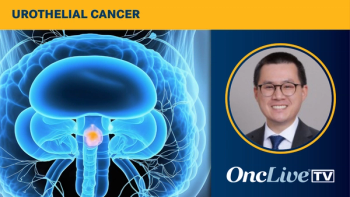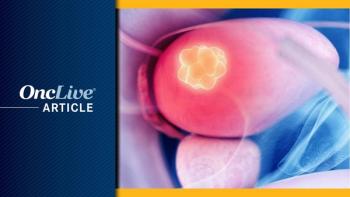
Practical Management of AEs in Metastatic Bladder Cancer
Jeanny Aragon-Ching, MD: Immune-related adverse events are actually not very common, especially for grade 3 or 4 adverse events. If and when they do happen, if some of them are life-threatening, it is a very important concept to know for both physicians and patients alike. We often emphasize to patients that anything can happen, including autoimmune-related adverse events, such as autoimmune hepatitis, autoimmune colitis, and autoimmune nephritis. Any organ, in fact, would be at risk, with nephritis as an example.
As a rule of thumb, I often tell patients and other physicians that whenever we encounter any toxicity that could be autoimmune related, one of the things we always want to do is rule out other infectious causes or any other cause that would explain the toxicity. For instance, in a patient who developed renal dysfunction, was there a recent contrast use? Is there acute kidney toxicity because of the use of antibiotics? Is there dehydration? For colitis, we want to make sure they don’t have any infectious causes. It’s the same thing with hepatitis—do they have viral hepatitis? Once we’ve ruled other causes out and there’s no good explanation other than autoimmune, we determine how bad it is.
What is the severity of the grading? We would often go back to our primary source and look at our toxicity grading book. At the same time, there’s also general rules of thumb. If a patient develops a grade 1 toxicity, they’re usually asymptomatic. For instance, with autoimmune hepatitis, there’s a lab abnormality. As long as your AST [aspartate aminotransferase test] and ALT [alanine transaminase test] are less than 3 times the upper limit of normal, you can choose to keep the patient on immunotherapy and closely monitor them.
The moment you hit a grade 2 toxicity, that warrants stopping the drug—at least temporarily—initiating all work-up, and instituting steroids because that’s an essential part of the management of any immune-related toxicity. We usually use prednisone or its equivalent. You can start with 0.5 mg/kg to 1 mg/kg dose per day. Then you escalate, especially if a patient does not respond within 3 to 5 days.
That may be a trigger to escalate your dose steroids. In some cases, let’s say autoimmune colitis, you may take it up a notch by giving them additional immunosuppressant drugs like infliximab. In autoimmune hepatitis, you may choose to use other immunosuppressant drugs like mycophenolate. A lot of this is the idea and option of engaging all your specialists, engaging GI [gastrointestinal] doctors for autoimmune hepatitis or colitis, or engaging nephrologists when you have renal dysfunction.
That is key management. Whenever you see grade 3 or 4 toxicity, that’s an indication of stopping it completely and perhaps never going back, depending again on the toxicity because one cannot risk having a rechallenge once you give the patient the same drug or even a different drug of the same class.
Transcript Edited for Clarity






































